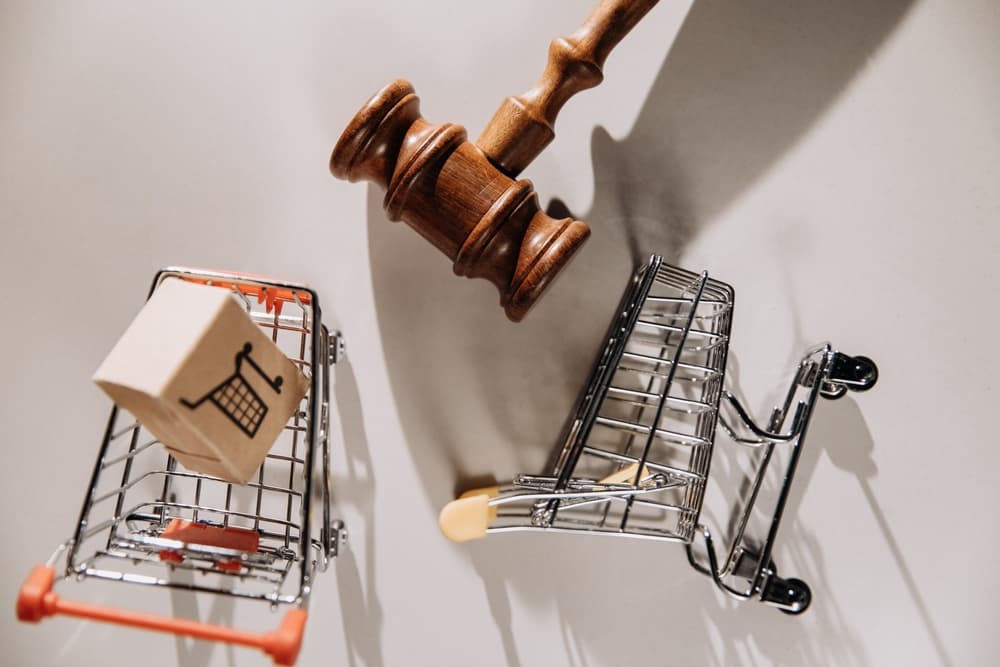Protecting Your Financial Future
Are you a San Diego resident dealing with the frustration and stress of credit report errors? You're not alone. Inaccurate information on your credit report can have far-reaching consequences, affecting your ability to secure loans, rent an apartment, or even land a job.
Fortunately, the Fair Credit Reporting Act (FCRA) and the California Consumer Credit Reporting Agencies Act (CCRAA) provide you with rights and protections when it comes to disputing credit report errors. Read on to learn more about credit report disputes in San Diego so you have the knowledge and tools to take control of your financial future.
If you’re dealing with credit report problems and struggling to resolve the issue, contact a credit defense attorney in your area for assistance.
Understanding Credit Reports
Your credit report is a detailed record of your credit history, including information about your credit accounts, payment history, and outstanding balances. The three major credit bureaus—Equifax, Experian, and TransUnion—collect and maintain this information, which is then used to calculate your credit score. Understanding the contents of your credit report is crucial for identifying and addressing any errors or inaccuracies.
How Frequent Are Credit Report Errors?
According to a study by the Federal Trade Commission, one in five consumers has an error on at least one of their credit reports. These errors can range from minor inaccuracies to significant mistakes that can severely impact your creditworthiness. It's essential to regularly review your credit reports to catch and correct any errors promptly.
Common Credit Report Errors
Credit report errors are more common than you might think, and they can have a significant impact on your financial well-being. Here are some of the most common credit report errors to watch out for:
- Mistaken identity or mixed files: This occurs when your credit information is mixed up with someone else's, often due to similar names, addresses, or Social Security numbers. This can result in someone else's negative credit history appearing on your report.
- Outdated or inaccurate account information: Credit reports may contain outdated or inaccurate information about your accounts, such as incorrect balances, credit limits, or payment histories. This can happen if creditors fail to report updated information to the credit bureaus.
- Incorrect payment history: Your credit report may show late payments or missed payments that you actually made on time. This can be due to errors in reporting by creditors or mistakes made by the credit bureaus.
- Accounts that don't belong to you: Sometimes, accounts that aren't yours can end up on your credit report. This can happen due to identity theft, clerical errors, or mixed files.
- Duplicate accounts: Your credit report may list the same account multiple times, making it appear as though you have more debt or open accounts than you actually do.
- Incorrect public records: Public records, such as bankruptcies, foreclosures, or tax liens, may be reported inaccurately or remain on your credit report for longer than they should.
- Closed accounts reported as open: In some cases, closed accounts may be incorrectly reported as open, which can affect your credit utilization ratio and potentially lower your credit score.
- Incorrect inquiries: Hard inquiries, which occur when you apply for credit, can stay on your credit report for up to two years. However, sometimes inquiries you didn't authorize or that shouldn't be there can appear on your report.
It's essential to regularly review your credit reports from all three major credit bureaus to identify and dispute any errors you find. By staying vigilant and addressing credit report errors promptly, you can protect your credit score and financial well-being.
If you're having trouble resolving credit report errors on your own, consider seeking the assistance of a skilled credit defense attorney. They can help you navigate the dispute process, communicate with credit bureaus and creditors, and ensure that your credit reports accurately reflect your credit history.
How Can Credit Report Errors Affect Me?

Credit report errors can have a profound impact on your financial life, causing both short-term and long-term consequences. Here are some of the ways inaccurate information on your credit report can affect you:
- Higher interest rates: Credit report errors that lower your credit score can result in higher interest rates on loans, credit cards, and other forms of credit. This means you'll pay more in interest charges over time, making it harder to pay off debt and achieve your financial goals.
- Difficulty obtaining credit: Inaccurate negative information on your credit report can make it challenging to obtain credit when you need it. Lenders may deny your applications for credit cards, personal loans, mortgages, or auto loans, limiting your financial options and making it harder to make large purchases or investments.
- Challenges in renting an apartment or securing housing: Many landlords and property management companies check credit reports when evaluating potential tenants. Credit report errors that lower your credit score or indicate a history of late payments can make it difficult to rent an apartment or secure housing, even if you have a stable income and a good rental history.
- Potential employment issues: Some employers, particularly those in the financial sector or positions that involve handling money, may check credit reports as part of their background screening process. Inaccurate negative information on your credit report could cause employers to question your reliability or financial responsibility, potentially costing you job opportunities.
- Higher insurance premiums: In some states, insurance companies may use credit-based insurance scores to determine your premiums for auto, homeowners, or renters insurance. Credit report errors that lower your credit score could lead to higher insurance premiums, making it more expensive to protect your assets.
- Strain on personal relationships: Financial stress caused by credit report errors can put a strain on personal relationships, particularly if you're unable to obtain credit, secure housing, or make important purchases due to inaccurate information on your credit report.
- Time and resources spent disputing errors: Disputing credit report errors can be a time-consuming and frustrating process, taking valuable time and resources away from other important aspects of your life.
Given the significant impact credit report errors can have on your financial well-being and overall quality of life, it's crucial to regularly review your credit reports and promptly dispute any inaccuracies you find. Work with a knowledgeable credit defense attorney who can help you protect your rights and ensure the accuracy of your credit reports.
Disputing Credit Report Errors in San Diego (The Credit Report Dispute Process)
If you identify an error on your credit report, you have the right to dispute it under the FCRA and CCRAA. The dispute process involves:
- Submitting a written dispute to the credit bureau and the creditor
- Providing supporting documentation to substantiate your claim
- Waiting for the credit bureau and creditor to investigate your dispute (generally 30-45 days)
- Receiving a response from the credit bureau and creditor regarding the outcome of your dispute
A credit defense attorney can assist with disputing any errors on your credit report and increase your chances of getting a prompt and favorable outcome.
What Can I Do If the Credit Bureau Denies My Dispute?
If your dispute is denied, you have the right to:
- Request a reinvestigation of your dispute
- Add a statement to your credit report explaining the dispute
- Seek legal assistance from a credit defense attorney
Contacting an attorney who deals with credit report problems is essential to protecting your rights and ensuring you receive a swift resolution.
Can I Receive Compensation for A Denied Dispute?
In some cases, you may be entitled to compensation if a credit bureau or creditor fails to properly investigate your dispute or continues to report inaccurate information. A skilled credit defense attorney can help you determine your eligibility for compensation and pursue legal action if necessary.
Preventing Future Credit Report Errors
To minimize the risk of future credit report errors, consider:
- Regularly reviewing your credit reports (you're entitled to one free report from each bureau annually)
- Notifying creditors and credit bureaus of any changes in your personal information
- Keeping detailed records of your credit accounts and payment history
- Placing a security freeze on your credit reports to prevent unauthorized access
How Can a Credit Defense Attorney Help Me with Credit Reporting Errors?

If you’ve tried to resolve your credit report issues without success, a skilled credit defense attorney can be an invaluable ally. An attorney can:
- Review your credit reports and identify potential errors
- Guide you through the dispute process and communicate with credit bureaus and creditors on your behalf
- Pursue legal action if necessary to ensure the accuracy of your credit reports
- Help you recover compensation for any damages caused by credit report errors
Contact a San Diego Credit Defense Attorney Today
If you're dealing with credit report errors in San Diego, you need to act quickly to obtain the legal help you need. The experienced credit defense attorneys at Kazerouni Law Group, APC, are here for you. With a deep understanding of the FCRA, CCRAA, and the complex world of credit reporting, our team is dedicated to protecting your rights and ensuring your credit reports are accurate.
Don't let credit report errors hold you back from achieving your financial goals. Contact Kazerouni Law Group, APC, today to request a consultation with a San Diego consumer protection lawyer. Together, we can work to resolve credit report errors, protect your creditworthiness, and secure your financial future.